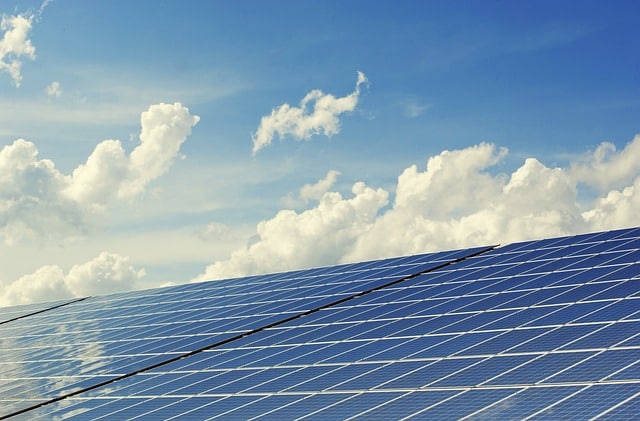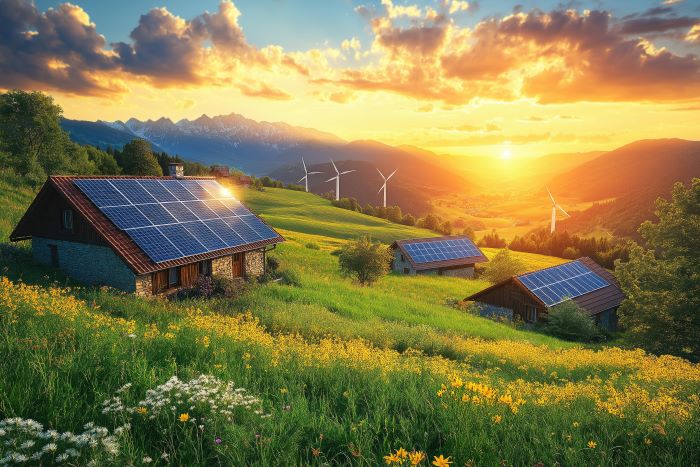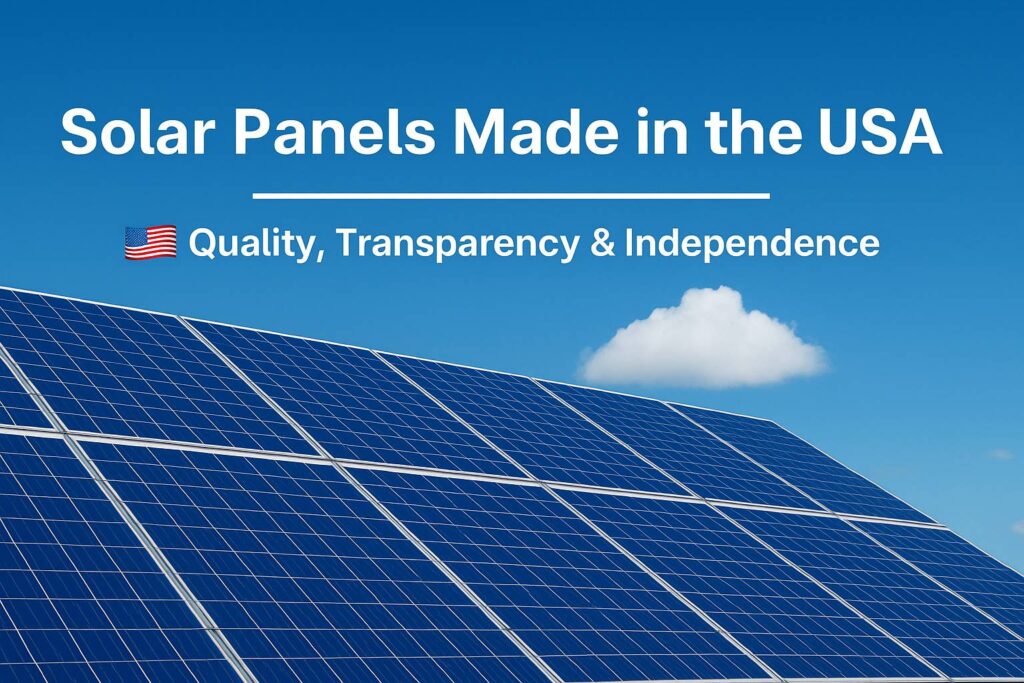📦 Fast Delivery – Order Now!
💸 Shop Safely – 100% Money-Back Guarantee
👨🔧 Lifetime Customer Support
📦 Fast Delivery – Order Now!
💸 Shop Safely – 100% Money-Back Guarantee
👨🔧 Lifetime Customer Support
Many people use the terms “solar panels” and “photovoltaic panels” interchangeably. But are they really the same? The answer is: not quite. While all photovoltaic (PV) panels are solar panels, not all solar panels are photovoltaic. Let’s break it down — because the difference matters, especially when you’re planning an energy-efficient future. Here you can find out everything about the topic: solar thermal energy vs photovoltaic!

“Solar panels” is a general term that covers all devices that harness sunlight. Some panels convert light into electricity, while others use it to produce heat. That’s the key distinction. Solar thermal panels collect heat, while photovoltaic panels convert sunlight directly into electricity.
So, if your goal is to generate electricity, you want photovoltaic panels. But if you aim to heat water for your home, solar thermal panels might be the better fit. Both save energy — but in different ways.

✅ 580W high-efficiency N-Type TOPCon panel
✅ 144 mono half-cut cells with bifacial design
✅ Silver frame, durable for high snow and wind loads
Photovoltaic panels use semiconductors like silicon to absorb sunlight. The energy from the sun knocks electrons loose, creating a flow of electricity. This process is known as the photovoltaic effect.
Because of this, PV panels power everything from homes to satellites. They’re efficient, clean, and scalable. And since they create electricity on the spot, they reduce dependence on the grid — and that cuts your energy bill.

People often say “solar panels” when they actually mean “photovoltaic panels.” That’s because PV panels dominate the market. They’re the most visible, common, and promoted. But it’s still worth knowing the terminology, especially when choosing a system.
If someone offers you solar panels, ask if they’re PV or thermal. It could save you thousands — and ensure your setup matches your goals.
If you want electricity and energy independence, choose photovoltaic panels. But if you only need hot water — and your climate supports it — solar thermal can be a low-maintenance solution. And yes, you can combine both systems on the same roof. That’s called hybrid solar — and it’s a smart choice for some households.

✅ 11.4 kW hybrid inverter
✅ Scalable up to 80 kWh
✅ App/web-based remote monitoring
Photovoltaic panels usually have an efficiency of 15–22%. Solar thermal systems, however, can be over 70% efficient — because converting light into heat is simpler than creating electricity. But PV panels work year-round and power more than just your water heater.
Thermal panels are cheaper upfront, but they offer less long-term flexibility. PV systems often qualify for better tax credits and incentives. That means lower net costs over time — and greater returns.
Both systems are durable, but photovoltaic panels often last longer. Most PV panels come with a 25-year warranty, and many produce electricity for over 30 years. Solar thermal systems usually need more maintenance. They have pumps, valves, and fluids that may require service.
So, while both are reliable, PV panels are more plug-and-play. And since energy independence is a growing trend, many homeowners lean toward photovoltaic.

| Feature | Solar Thermal Panels | Photovoltaic (PV) Panels |
|---|---|---|
| Energy Output | Heat | Electricity |
| Efficiency | 60–80% | 15–22% |
| Uses | Water/space heating | Lights, appliances, EVs |
| Maintenance | Moderate | Low |
| Lifespan | 15–20 years | 25–30+ years |
| Incentives Available | Sometimes | Frequently |
| Ideal For | Hot water, heating | Electricity, off-grid power |
| Hybrid Option Possible? | Yes | Yes |
At AceFlex.us, we help you choose the right technology — because one size doesn’t fit all. Whether you need photovoltaic power, solar thermal, or both, we offer customized solutions with expert support.
🌞 Ready to power your home the smart way?
👉 Visit AceFlex.us and schedule a free consultation today!

While the terms solar panels and photovoltaic panels are often used interchangeably, there’s a slight but important difference. Solar panels can refer to both solar thermal systems that generate heat and photovoltaic (PV) systems that generate electricity. Yet, in most residential and commercial use cases today, PV panels dominate the market because they directly convert sunlight into power.
Because of their efficiency, flexibility, and widespread use, photovoltaic panels are often what people mean when they say “solar panels.” Both technologies help reduce energy bills and carbon footprints, but PV panels are clearly leading the way in solar innovation and adoption.

It depends on the application, because solar thermal is better for heating while photovoltaic panels generate electricity. But since electricity is more versatile, PV panels are usually the better all-around option.
A photovoltaic cell directly turns sunlight into electricity using semiconductors. In contrast, a solar thermal power plant uses mirrors to concentrate heat and drive turbines.
Solar thermal devices capture heat and use it to warm water or air. Photovoltaic devices, however, convert sunlight into electric current.
Yes, because photovoltaic panels generate electricity, which is more versatile than just heating water. And since they work in various climates, they offer broader energy solutions.
Not exactly, but they are closely related. Solar includes all sunlight-based systems, while photovoltaic specifically means converting sunlight into electricity.
First, efficiency drops on cloudy days or at night. Also, installation costs are still high, and energy storage systems can be expensive.
A solar system might refer to solar thermal or solar lighting, but a PV system specifically creates electricity. So while all PV systems are solar, not all solar systems are PV.
Solar heating panels heat water or air directly. Photovoltaic cells convert sunlight into electricity instead.
Yes, the majority are photovoltaic because they’re efficient, scalable, and easy to install. Plus, demand for clean electricity keeps growing.
They still work, but with reduced efficiency—usually around 75–85%. Many are recycled, and some continue producing power for decades.
Monocrystalline panels are often considered the best due to their high efficiency and sleek look. Yet polycrystalline panels cost less and still perform well.
Most panels last 25 to 30 years. And even after that, they often still generate some electricity.
It can be harder if the panels are leased or financed, since buyers must assume the contract. But if the system is owned outright, it can add value instead.
Prices vary, but most systems cost between $15,000 and $25,000 after incentives. The exact amount depends on energy use and panel quality.
Rarely, since panels are built to handle impact and bad weather. But large hail can crack them, especially over time.
Yes, in most cases solar panels are covered under dwelling insurance. Still, it’s smart to confirm with your insurance provider.
Tesla solar roofs typically cost between $30,000 and $70,000 depending on size and complexity. They combine energy generation and roofing, which adds to the price.
If a panel cracks or fails, it stops producing electricity efficiently. You can replace the panel, and most warranties cover such damage.
AceFlex is one of the leading online retailers of renewable energy products and offers a wide range of solar products. We work with well-known manufacturers and wholesalers and can offer you cost-effective products in the field of photovoltaics so that you too can contribute to the energy transition.
Looking for an experienced team for planning your photovoltaic system without the hassle of doing it yourself? We are your trusted partner, offering comprehensive nationwide solutions. We provide expert consultation and supply of both photovoltaic systems and storage units tailored to your specific needs.
© 2025 Aceflex All Rights Reserved. Design by Media Pantheon, Inc.





